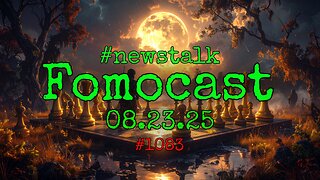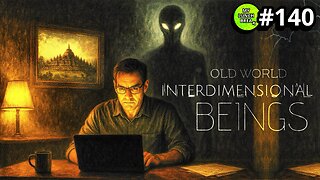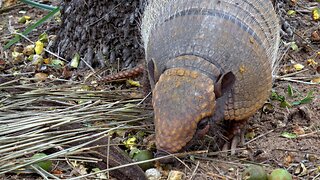Premium Only Content

Menopause Symptoms
Menopause is the time that marks the end of your menstrual cycles. It's diagnosed after you've gone 12 months without a menstrual period. Menopause can happen in your 40s or 50s, but the average age is 51 in the United States. Menopause is a natural biological process. But the physical symptoms, such as hot flashes, and emotional symptoms of menopause may disrupt your sleep, lower your energy or affect emotional health. There are many effective treatments available, from lifestyle adjustments to hormone therapy. Symptoms In the months or years leading up to menopause (perimenopause), you might experience these signs and symptoms: Irregular periods Vaginal dryness Hot flashes Chills Night sweats Sleep problems Mood changes Weight gain and slowed metabolism Thinning hair and dry skin Loss of breast fullness Signs and symptoms, including changes in menstruation can vary among women. Most likely, you'll experience some irregularity in your periods before they end. Skipping periods during menopause is common and expected. Often, menstrual periods will skip a month and return, or skip several months and then start monthly cycles again for a few months. Periods also tend to happen on shorter cycles, so they are closer together. Despite irregular periods, pregnancy is possible. If you've skipped a period but aren't sure you've started the menopausal transition, consider a pregnancy test. Menopause is a natural process that occurs as a woman's ovaries stop producing eggs, and the production of hormones such as estrogen and progesterone declines. Menopause can also occur if a woman' s ovaries are surgically removed or if they are damaged by certain diseases or cancer treatments. Natural menopause does not occur suddenly. A period called perimenopause usually begins a few years before the last menstrual cycle. There are two stages in the transition: Early Stage. Perimenopause can begin in some women in their 30s, but most often it starts in women ages 40 to 44. It is marked by changes in menstrual flow and in the length of the cycle. There may be sudden surges in estrogen. Late Stage. The late stages of perimenopause usually occur when a woman is in her late 40s or early 50s. In the late stages of the menopausal transition, women begin missing periods until they finally stop. About 6 months before menopause, estrogen levels drop significantly.
-
 18:14
18:14
Her Patriot Voice
5 hours agoWho Is WORSE for NYC: Trump Girl or Socialist?
24.2K23 -
 3:39:42
3:39:42
SavageJayGatsby
4 hours agoSpicy Saturday with Mally! | Road to 100 | $300 Weekly Goal for Spicy Bites!
31.3K1 -
 LIVE
LIVE
FomoTV
6 hours ago🚨 Swamp Theater: FBI Raids Bolton 🕵 Still NO Epstein Files, Trump's Troops & the Red Heifer Hoax 🐂 | Fomocast 08.23.25
72 watching -
 6:04:40
6:04:40
Akademiks
9 hours agoRoc Nation & Meg Thee Stallion did a 7 HOUR Deposition with me. Drake Secret Kid Finally Revealed.
49.9K2 -
 24:19
24:19
Stephen Gardner
6 hours ago🚨BREAKING: FBI Raid of John Bolton’s House Reveals THIS!
51.9K124 -
 8:31
8:31
MattMorseTV
8 hours ago $1.10 earnedTexas just did the IMPOSSIBLE.
46.2K60 -
 24:39
24:39
MYLUNCHBREAK CHANNEL PAGE
1 day agoInterdimensional Beings at Borobudur
54.6K29 -
 12:42
12:42
Scammer Payback
1 day agoCalling Scammers who were Raided
25.7K11 -
 23:31
23:31
IsaacButterfield
18 hours ago $0.10 earnedThe Woke Mob Is Really CANCELLING Matt Rife For THIS…
23.4K16 -
 1:23
1:23
WildCreatures
9 days ago $1.00 earnedThis mother armadillo eating her palm nuts is truly adorable
20K16